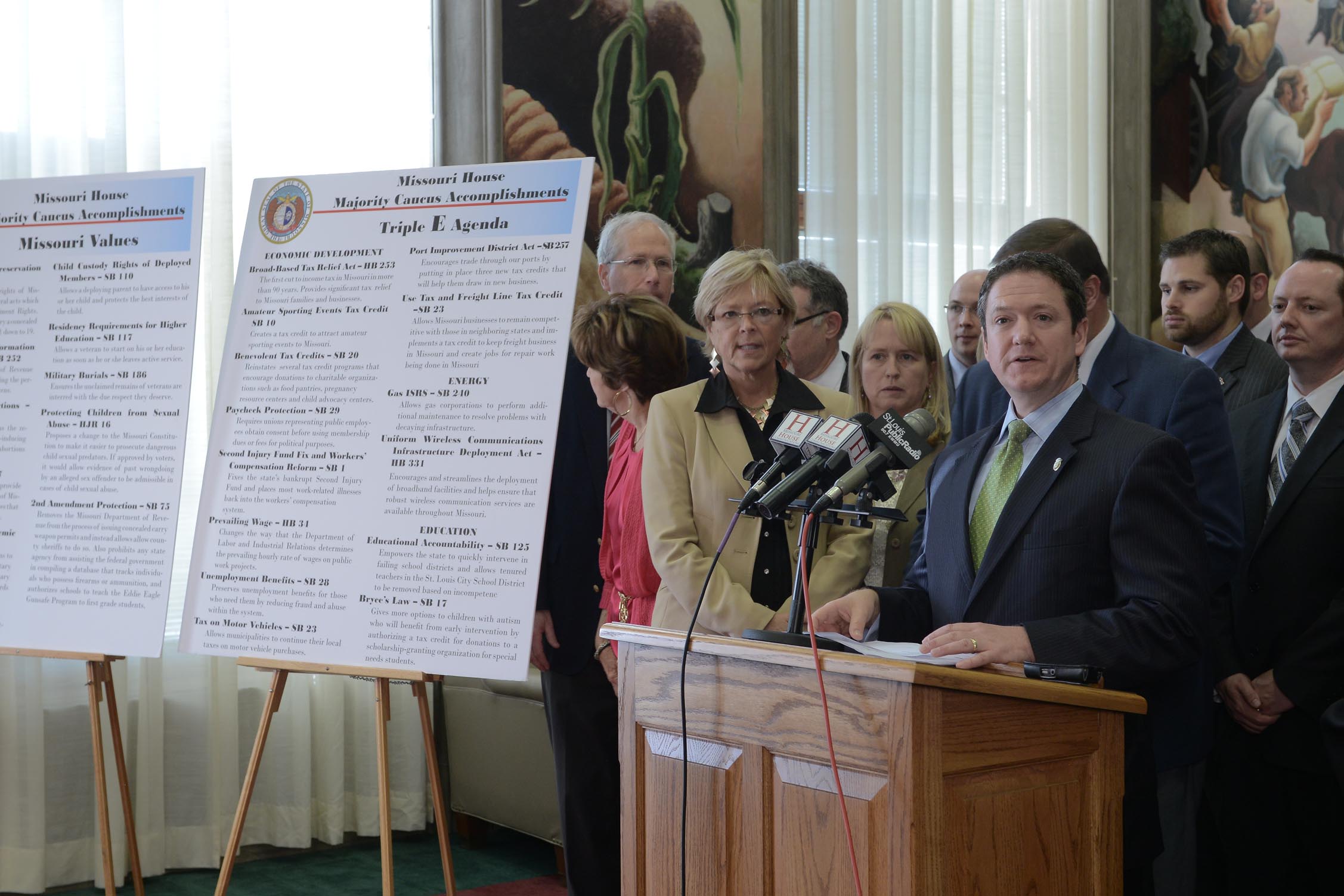
House Speaker Tim Jones (Photo: House Photographer Tim Bommel)
— House Speaker Tim Jones has withdrawn his subpoenas of top members of Gov. Jay Nixon’s administration, ending a potential legal battle between the two branches as the political battle over Nixon’s administration’s former document scanning process continues to crawl on.
In a statement on Monday, Jones told reporters that the subpoenas for the officials to appear before the House’s committee on privacy protection were no longer necessary because the committee’s initial hearing has already happened. Instead, Jones said he and the committee’s chairman, state Rep. Stanley Cox, were working with the administration to “make sure that these individuals will testify at a future hearing of the investigative committee.
“I urge Governor Nixon to come clean and order these officials, including his top aides, to stop obstructing this investigation,” Jones said. “Missourians deserve the truth about this threat to our privacy.”
A Republican-elected Cole County judge initially denied Jones’s effort to have the court force the individuals to appear before the committee. Nixon’s administration argued to the court that because committee is made up of citizens, as well as lawmakers, they felt that the committee was out of line issuing subpoenas.
The issue emerged after a Stoddard County man sought to renew his conceal carry weapons permit earlier this year. When he refused to let a fee office employee scan his personal documents, he was unable to get his permit renewed, and subsequently launched a lawsuit against the state. Republicans have since used the issue to distract from Nixon’s agenda, which at the time was focused on using federal funds to expand Medicaid.
Nixon’s administration has since ceased the scanning of documents, which could remove steam from the GOP backed push. Still, at the committee’s hearing, the conversation focused less on the scanning and more on REAL ID implementation, itself. State law has attempted to nullify the federal law, but the administration has nonetheless moved forward on several of its components.
